It can be difficult to name a more iconic duo in the Chinese entrepreneurial world than Wang Xing and Wang Huiwen, the founders of Meituan-Dianping (3690.HK), one of China’s largest and most successful technology companies.
In the intense Chinese internet battlefield, Wang Xing, Meituan’s co-founder and CEO, has a reputation as the ultimate strategic planner, while Wang Huiwen, co-founder and senior vice president, is known for being his right-hand man and ultimate executor. The duo has been inseparable for more than a decade – until January 2020, when 40-year-old Wang Huiwen announced that he would retire from Meituan, stepping away from the firm’s daily management by December 2020.
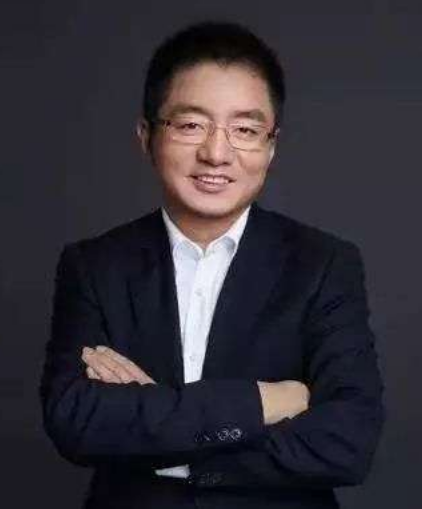
From devious schoolmates to risk-taking business partners
Wang Huiwen met Wang Xing on his first day of school in 1997, when both of them were attending Tsinghua University in China. Quickly, they became roommates and close friends.
The two students were not role-models in terms of academic performance, as they ritually ranked in within the bottom-five performers of each exam. Early on, the roommates cobbled together enough money to buy a shared computer that was placed in their dormitory, according to a report by 36Kr.
Wang Huiwen spent most of his time gaming and arguing with people online rather than pursuing his studies. Similarly, Wang Xing spent hours exploring the wonders of the internet and dreaming up possible ventures he could explore.
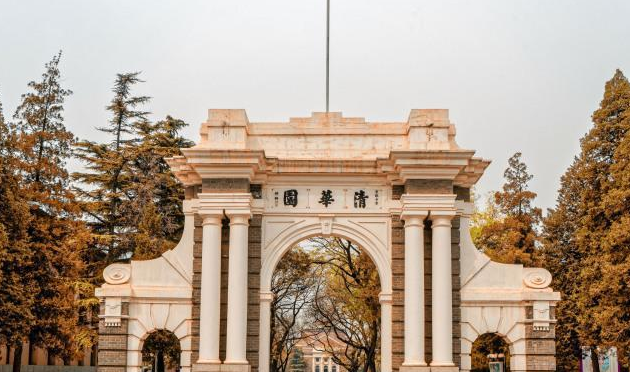
When they finally graduated in 2001, the roommates went their separate ways. Wang Xing moved to the United States for doctoral studies in computer engineering, while Wang Huiwen pursued a degree in ocean acoustics in the Chinese Academy of Sciences.
However, their separation would not be for long.
Finding inspiration in the internet craze in America, Wang Xing dropped out of his program early and returned to China to pursue the vague idea of starting a yet-to-be-defined internet company. Wang Xing also persuaded his old friend Wang Huiwen to drop out of school to join him in this highly idealistic endeavor.
“Can you program?” Wang Huiwen allegedly asked Wang Xing.
“We can learn,” Wang Xing replied brightly.
And learn they did. Both tried their hand at more than ten projects over the next year, and in 2005, together with Lai Binqiang, another one of Wang Xing’s middle school classmates, they launched a social networking service named Xiaonei. Xiaonei was modeled after Facebook, and in three months, the company acquired more than 30,000 users.
However, their entrepreneurial inexperience eventually led to a fundraising impasse. Despite Xiaonei’s promise, they were eventually forced to sell their company to Oak Pacific in October 2006 as they lacked the money to support it further. Xiaonei eventually became Renren (NYSE: RENN), a social networking site that still holds some interest among college students today.
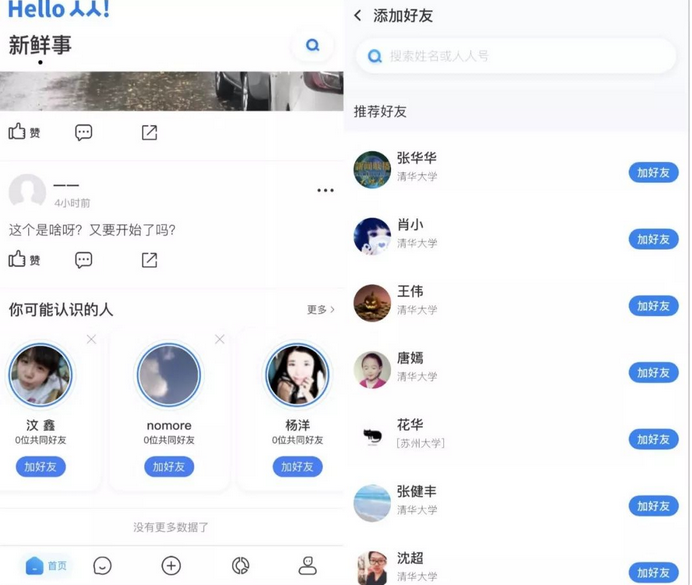
The two men went their separate ways in their entrepreneurial journey. In particular, Wang Huiwen founded Taofang, a second-hand housing website, while Wang Xing launched Fanfou, China’s early version of Twitter—which would eventually fade away after a skirmish with regulators.
The battles for Meituan’s foundation
However, their magnetic working relationship and their shared entrepreneurial desire drew them back together. In December 2010, Wang Xing gave Wang Huiwen a call and told him to stop working on his own company. He proposed that Wang Huiwen join him at his newest company, a fledgling and relatively unknown “group-buying” venture named Meituan.
Despite Wang Xing’s poor luck with his previous ventures, Wang Huiwen decided to again try his luck again with his friend.
In 2018, when asked why he chose to join Wang Xing again, Wang Huiwen simply said, “Wang Xing is an upright person. This is the most important foundation. . . It’s not that I’m foolish, but that I’m willing.”
There would be no such thing as a gradual easing in, however.
When Wang Huiwen joined Meituan, China’s infamous “war of a thousand group-buying companies” was in full swing. By August 2011, there were over 5,000 group-buying websites in operation. With the market flush with venture capital money, companies were recklessly competitive in the race for market share.
In the face of such fierce competition, rather than competing based on marketing or discounts, Meituan focused on operational excellence and prominence. For instance, it adopted a plan of aggressive expansion, while balancing against the ability to generate enough volume in certain rural cities.
Wang Huiwen also kept a watchful eye on the cash flow, unlike other companies, which burned cash in reckless subsidy programs or marketing campaigns.
Ultimately, Meituan prevailed in the group-buying industry. By 2013, Meituan had a market share of 52.4% and a presence in at least 165 cities across China.

After its success in the group-buying industry, Wang Xing decided to adopt a “T-shaped strategy” for its expansion, selecting food delivery, wine and travel, and online ticketing as new verticals. Wang Huiwen was once again entrusted with developing and growing the food delivery business.
Meituan’s next success in the food delivery industry was far from inevitable. In 2012, Wang Huiwen was given the task of starting this from scratch, equipped with only a skeleton team and a strategic spot of inspiration from Wang Xing.
In comparison, Ele.me, its biggest competitor, had already been around for four years, while Baidu Takeaway had the financial and marketing backing of Baidu.
Once again, Wang Huiwen chose to differentiate Meituan from its peers in terms of execution and cost control. In addition, he ran a tight ship when it came to product development, with Meituan introducing features such as fine-tuned, personalized recommendations and rating systems that other platforms lacked back then.
Scarcely two years later, in 2014, Meituan’s food delivery business became profitable. This is no mean feat in a market with relatively slim margins. Despite having been around the block for some time, American peers such as Uber Eats are still a long way from being profitable.
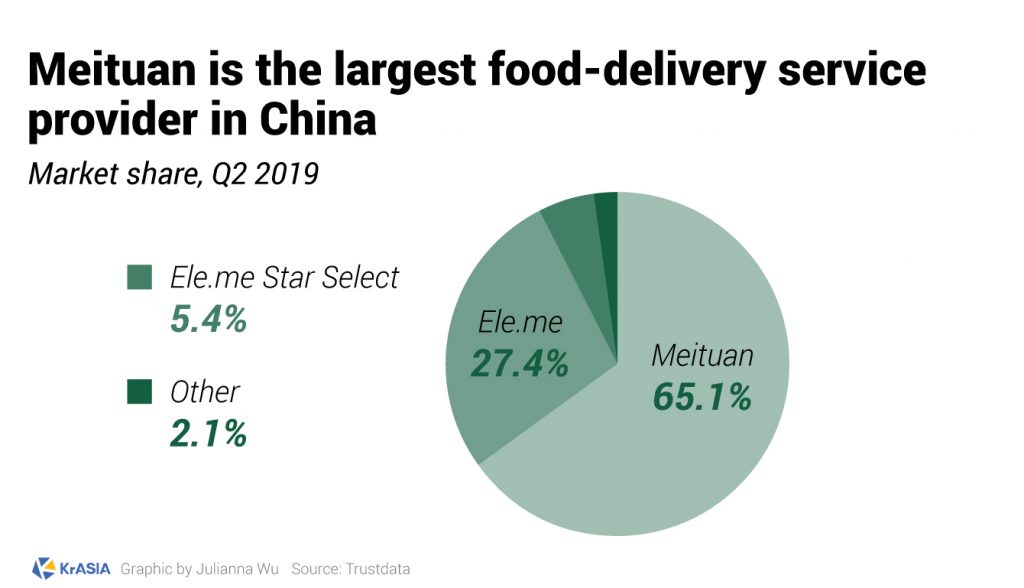
As of 2019, Meituan is the undisputed champion of the Chinese food delivery industry, with 65.1% market share.
In terms of revenue, Wang Huiwen’s baby is Meituan’s most crucial segment and has always contributed more than half of its revenue, occupying a core position among Meituan’s varied businesses. This means that Wang Huiwen was the man who brought Meituan, already a behemoth in the group-buying business, into its current core business of food delivery.
A stand-up guy for risky ventures
Within Meituan, Wang Xing is informally addressed as “Big Brother Wang” (Wang Ge), and Wang Huiwen is addressed as “Old Wang” (Lao Wang), as marks of their seniority. In turn, Wang Huiwen has always been Wang Xing’s go-to guy for new business opportunities and commands respect within Meituan for his loyalty, thoughtfulness, and ability to execute.
In 2016, Wang Xing shared that the next half of the internet battlefield in China would involve not just competing on breadth, but in achieving true depth in the digitalization and integration of supply chains.
When he threw down this gauntlet and announced this seismic shift, he chose none other than Wang Huiwen to lead this charge.
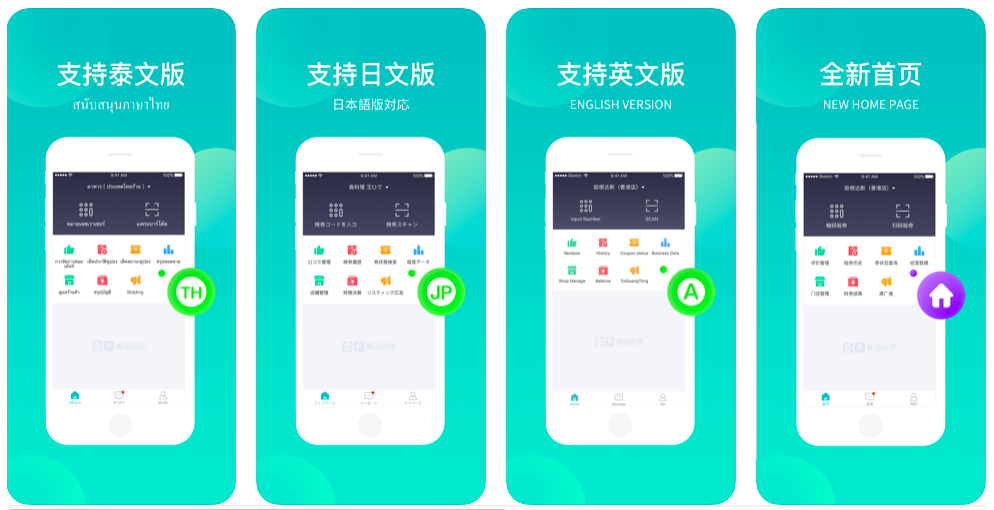
Since Wang Xing’s declaration in 2016, Meituan’s new B2B initiatives seem to have performed respectably under Wang Huiwen. In 2019, revenues from new initiatives, such as B2B food distribution and micro-loan services, increased by 81.5% year-on-year, increasing to 21% of its total revenues from 17.2% the year before.
However, these would be the last battles that he would lead Meituan into.
A gradual step backstage
On September 20, 2018, Meituan successfully listed on the Hong Kong Stock Exchange with a market capitalization of USD 4.83 billion. Today, it has blossomed into a company with a market value in excess of USD 100 billion and a footprint across almost every aspect of China’s internet industry.
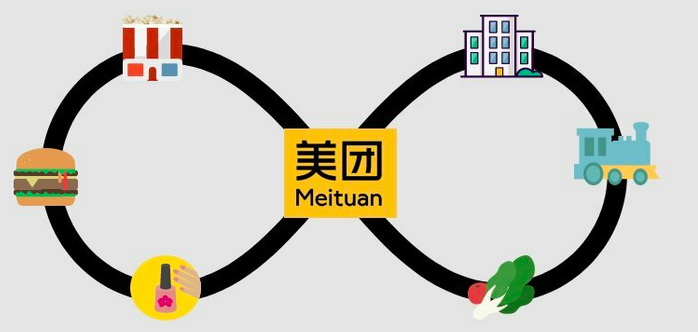
With Meituan moving from success to success, Wang Huiwen’s retirement might seem somewhat premature. However, the decision was not a bolt out of the blue.
In October 2019, Wang Huiwen stepped down from his role as the legal representative of Shanghai Luantuan Technology. Co. Ltd, the main corporate body for Meituan’s ride-hailing services. A year later, in December 2019, he further stepped down from his legal representative, executive directorship, and managerial roles at Beijing Mobike Technology Co. Ltd, and further withdrew from his role as legal representative of Shanghai Sankuai Technology Co. Ltd.
Rather than this being a product of internal conflict, however, industry consensus is that this seems to have been an agreed step to refresh Meituan’s talent pipeline.
Having fought Meituan’s wars for ten years, Wang Huiwen is ready to explore the next stage of his life.
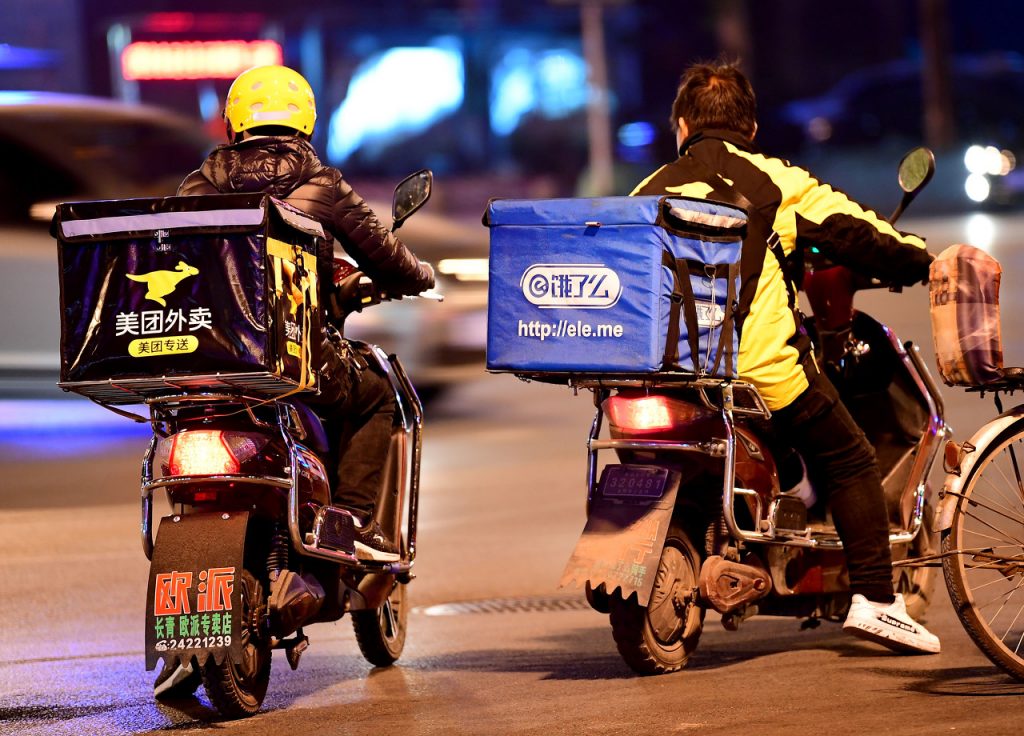
This was not without regret from Wang Xing, however, who waxed lyrical about Wang Huiwen in a letter to his employees following news of his resignation.
In the letter, he rattled off a laundry list of Wang Huiwen’s contributions to the company, holding little back when it came to attributing much of Meituan’s successes to Wang Huiwen’s efforts. He did not stop at these technicalities, however, and paid tribute to the strong bond shared by the two men.
“Even if we have nothing, we have our brothers and our courage,” said Wang Xing.
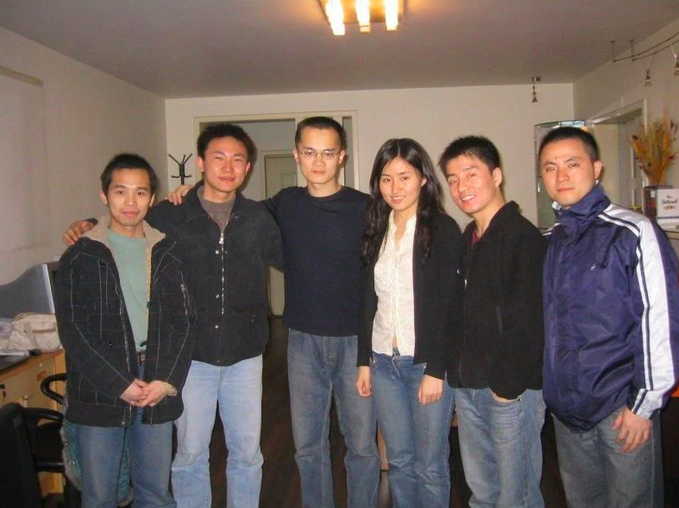
Wang Huiwen was modest in accepting such lavish praise. In his public response to Wang Xing’s laudatory words, Wang Huiwen reciprocated with a hat tip to his decades-old friendship with Wang Xing.
“Thank you, Wang Xing. Sharing a dorm with you was one of the biggest pieces of fortune in my life. You opened a window in my life, gave me a stage and many opportunities, and at every key juncture, indicated the right direction.”
“Thank you, all my colleagues, for not only being of great help to me, but also being especially tolerant of my quirky personality and extreme language!” rounded off Wang Huiwen cheekily.
What’s next?
Gao Yunxiao of Fengyun Capital once said that Wang Huiwen and Wang Xing were the two major philosophers of the Chinese internet world.
“I haven’t been able to handle the relationship between work, family, and my health well, and I cannot handle the need to focus on business operations and my personal love of many scattered interests,” reflected Wang Huiwen. “I am also worried that my life will be dominated by inertia and my comfort zone, and I may miss out on many different and wonderful things,” he continued.
Wang’s next steps forward will remain a mystery for now. What is certain, however, is that his ties to Meituan will not be dissolved. He will continue to serve as on Meituan’s board of directors. In addition, Wang Huiwen will be a lifetime honorary advisor of the company and a special lecturer of Meituan’s “Internet + University.”
“My luck is too good. I shouldn’t continue to be greedy, and I should know when to stop,” he said wistfully, signing off his farewell letter to the company he had helped to build.


